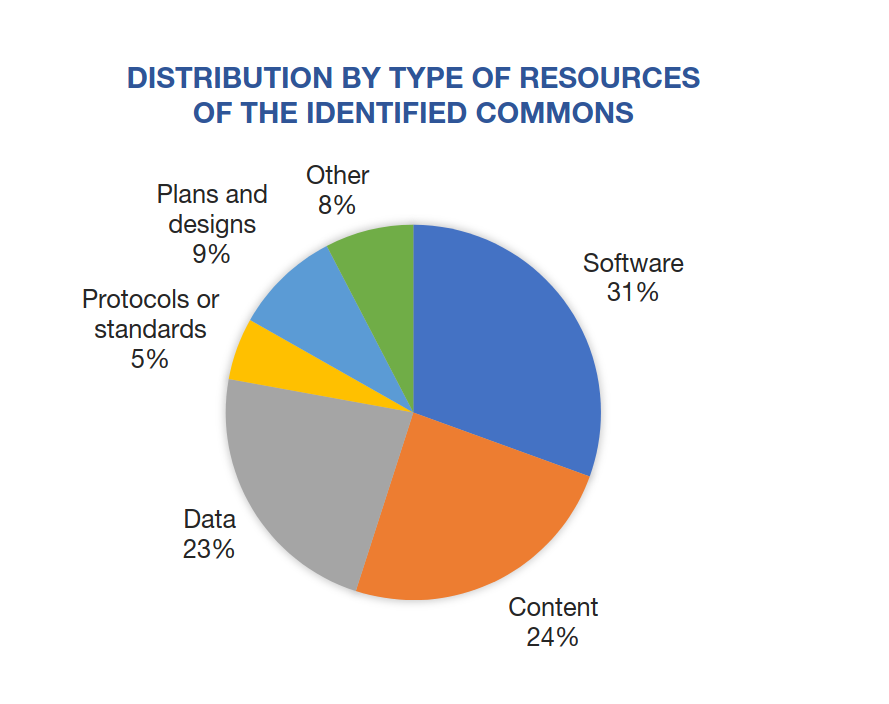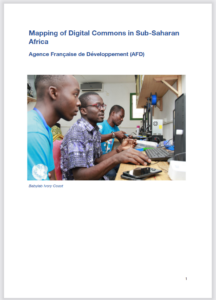I am super-happy, that the Agence Française de Développement (AFD) through Jan Krewer has managed to shed some light on a crucially under-researched topic: How are digital commons in Sub- Saharan Africa doing? Which resources are governed through a commons-approach on the continent? How important are they and how are their communities functioning? Although the study makes it clear that it did not intend to map all existing digital commons in Sub-Saharan Africa, I find it the most extensive listing that has ever been done listing a total of 89 examples. And I have tried to find such listings or mappings or compendiums or directories for a while, see for instance this article. So KUDOs to Jan and AFD.
On top of mapping the digital commons the study contains 10 short case studies based on interviews, namely African Storybook (Open Educational Resources), AfricArXiv (Content and data), AFRINIC (Norms and standards), Energypedia (Content), Grassroots Economics (Digital financial assets), Open MRS (Free software for health information management), Pamoja-Net (Digital equipment), Ushahidi (Open source
software and data), WaziHub (Free software, open plans and designs), Wikimedia Ivory Coast (Content).

The study is rounded off by five hypotheses, which follow the mapping and by some recommendations to AFD as development actor.
Here’s the hypotheses (which are called “assumtions” in the English translation, but I guess, hypothesises in the sense of possible leads/conclusions is what’s meant):
- Only a few African initiatives self-identify as commons
- Sub-Saharan African communities that participate in the development of commons rely primarily on a few highly committed citizens
- The sustainability of identified commons depends heavily on their ability to mobilize international support
- The positive impact of access to the global digital commons in Sub-Saharan Africa is widely recognized
- Digital commons in sub-Saharan Africa participate in citizen struggles to decolonize knowledge and culture and support local value creation
I will share the full study once it is launched, and I will also provide some of my thoughts on the hypotheses/assumptions and recommendations.
Source of all of the above:
Agence Française de Développement / Jan Krewer (2022): Mapping of Digital Commons in Sub-Saharan
Africa. Edited by Stéphanie Leyronas, Lola Mercier, Jean Millerat, Gwenaël Prié. Made available under the terms of the Creative Commons Attribution-Share Alike 4.0 International License.
Disclaimer: I have been interviewed as part of the information gathering for this study, and I have been working with Jan (Krewer) on commons and other issues.
